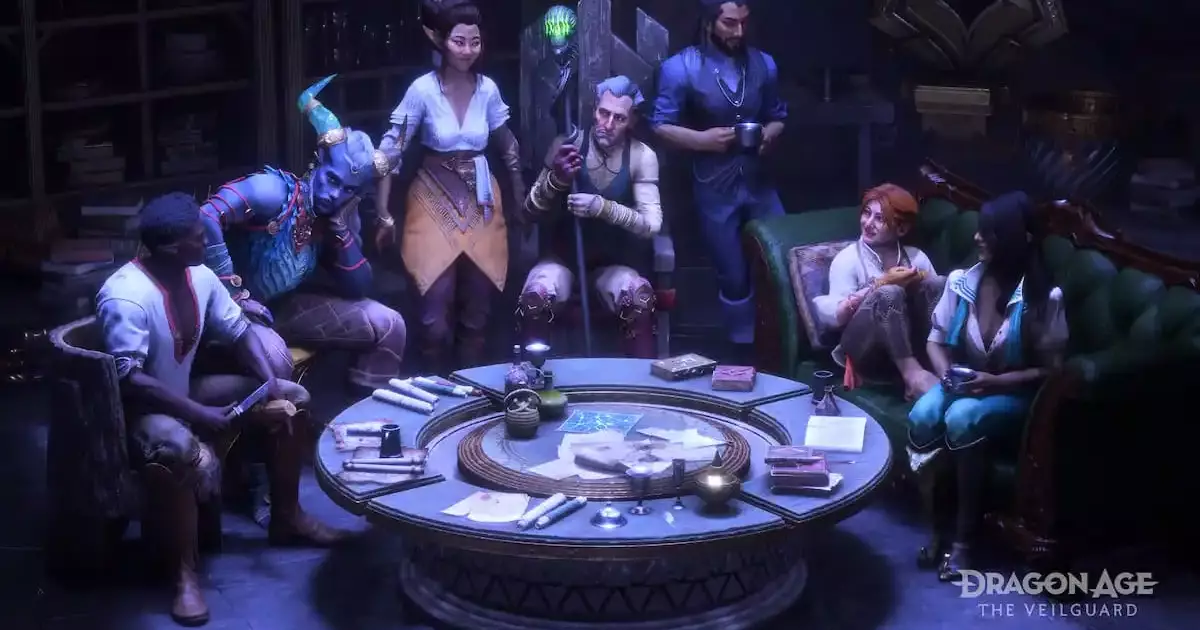In the realm of fantasy RPGs, few settings are as intricately woven and consistently inconsistent as that of Dragon Age. The political and cultural complexities inherent in Thedas challenge players not just to navigate a world alive with quests and adversaries but also to sift through its rich tapestry of narratives and lore. This fascinating incongruity separates Dragon Age from many RPGs that often lay out their histories through neatly organized entries. At the heart of this complexity lies the subjective nature of truth and belief, framing the series as more than mere storytelling—it’s an invitation to engage with an evolving mythos.
Divergent Perspectives: A Fractured Worldview
As players traverse Thedas, they are met with a plethora of divergent viewpoints. Humans, elves, and qunari each carry their own interpretations of history, which paves the way for factional conflicts and growing tensions. The interpretative clashes around the origins of magic, the Fade, and the enigmatic nature of the Black City deepen the lore. Such fragmentation enriches character dialogue and quests, prompting players to weigh motives and intentions carefully. It’s evident that Dragon Age is not just about defeating foes; it’s about navigating a world where knowledge is layered with interpretation, reflection, and often, manipulation.
David Gaider, the former lead writer behind much of Dragon Age’s lore, articulated the significance of this ambiguity in an interview. He emphasized that the wealth of narratives in Thedas is deliberately muddled—crafted to remain elusive. “To get the truth, you kind of have to pick between the lines,” Gaider remarked, suggesting that players must actively engage with the game’s history, discerning what may lie beneath the surface. This approach not only complicates the player’s journey but strengthens their connection to the game’s overarching narrative.
The Value of Doubt in World-Building
Gaider’s reflections shed light on a core principle of Dragon Age’s world-building: doubt. When examining the age-old tales from Thedas, one finds layers of bias and cultural interpretation that almost render the quest for absolute truth futile. The narrative is constructed such that the more ancient the story, the more obscured it becomes. This intentional obscurity invites players to contemplate perspectives beyond their own, offering a richer experience. The player’s journey transforms into a moral and intellectual exploration, prompting them to confront their own beliefs about the world they inhabit.
Furthermore, this thematic choice is not merely an artistic endeavor; it serves as a crucial mechanic in storytelling. By steering clear of straightforward answers, Gaider ensured that players must engage with the world’s mysteries thoughtfully. If everything were laid bare uniformly, the stakes would diminish, and the emotional resonance of the revelations could be overshadowed by mere acceptance. To have players question what is real adds depth and enduring engagement to the franchise.
With the release of Dragon Age: The Veilguard, there is speculation about a significant narrative shift that could shed light on some long-standing mysteries. The introduction of ancient Elven gods who have firsthand accounts of Thedas’s formative years raises compelling questions; could they clarify the intricacies surrounding the Maker and the true nature of magic? While these developments may tantalize fans, Gaider expressed cautious optimism. He recognizes that providing definitive answers may betray the very foundation that makes Dragon Age so intriguing.
The balance between unveiling secrets and maintaining a sense of wonder is precarious. As beloved as it is to dive deeper into these mysteries, the allure of the unknown often holds greater power over the narrative than the clarity of answers. Gaider’s remarks echo this sentiment, as he acknowledged that once significant lore is confirmed, the dynamic nature of the mythology could falter. Players might find themselves torn—yearning for clarity yet dreading the idea that answers could diminish their personal interpretations of Thedas.
Ultimately, Dragon Age invites players into a world bursting with contested truths and hidden knowledge, where their choices have genuine implications on their quest narratives. The complex interplay between belief and skepticism is more than just a design choice; it’s a philosophy underpinning the entire experience. As players stare into the depths of Thedas’s rich lore, they come to understand that the greatest journey lies in questioning what they know—an adventure that transcends mere play, inviting them into a profound dialogue with the narratives surrounding them.
As enthusiasts anticipate Dragon Age: The Veilguard, one thing remains clear: paradox, ambiguity, and the thrill of the unknown are woven into the very fabric of the Dragon Age series. While lore may evolve, the push and pull between discovery and doubt will forever characterize the journey through Thedas. The world beckons, rich with stories yet untold—each waiting for a player to peel back the layers and uncover their own perspective within the intricate lore.


Leave a Reply